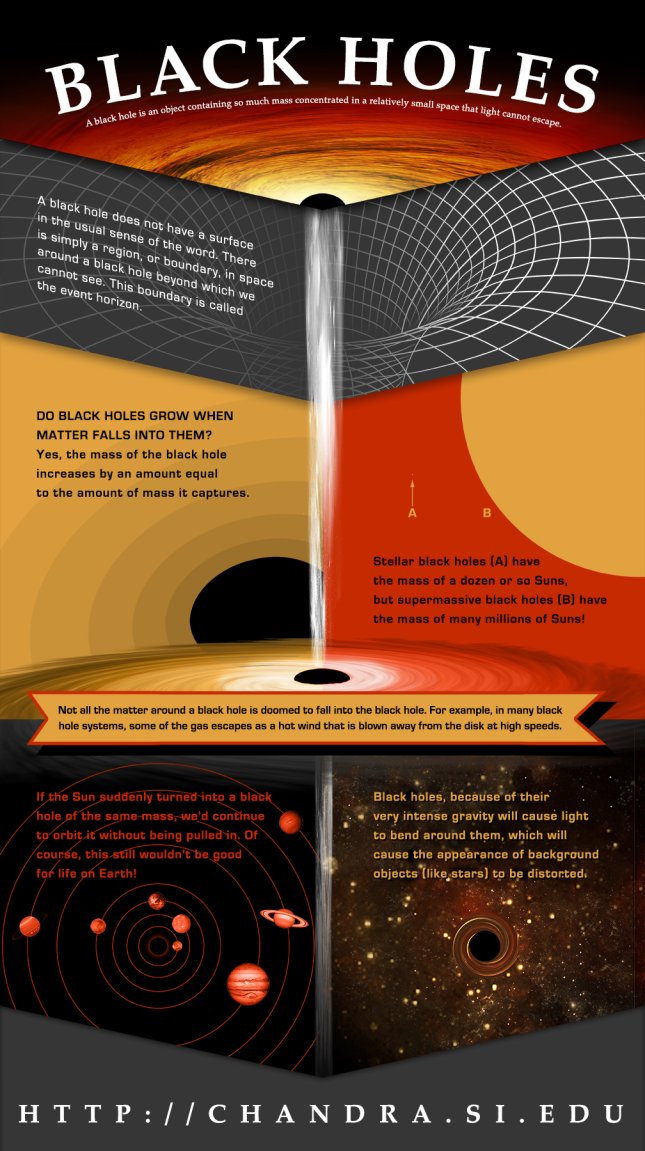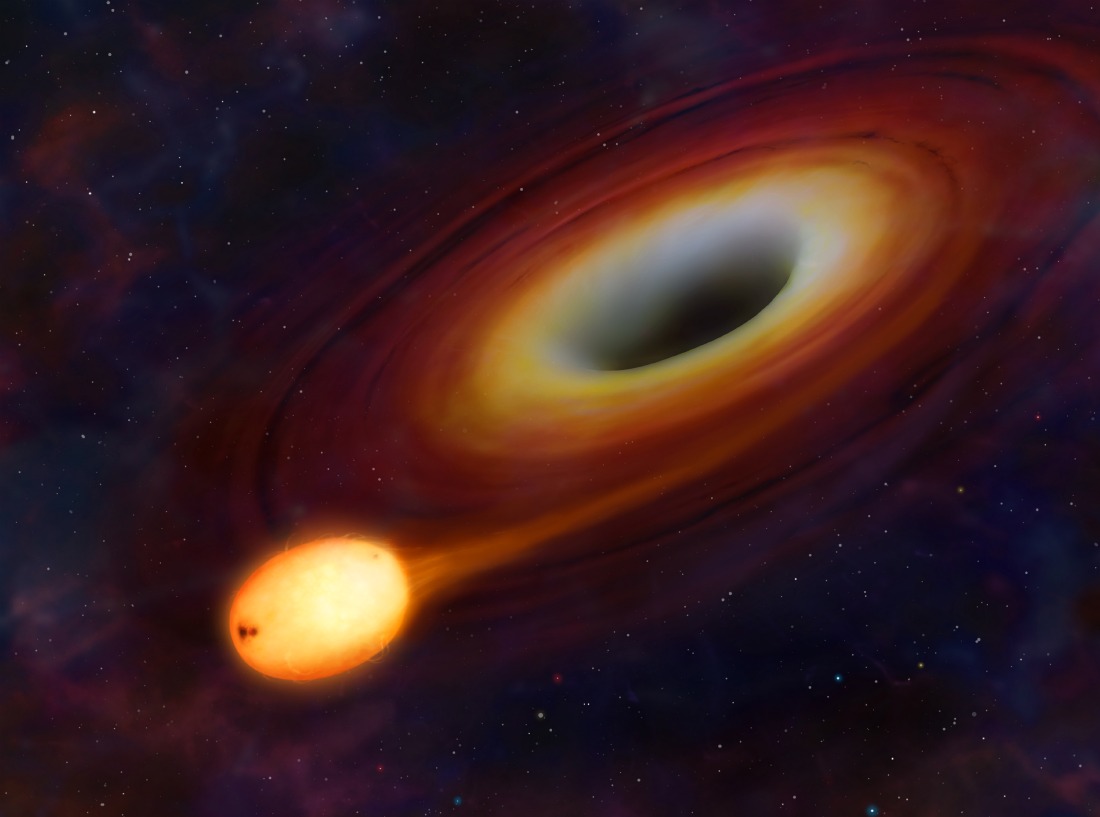

Hands down, the award for the most violent places in the universe goes to black holes. By definition, a black hole is a object with a gravitational field that is so strong, that not even light (the fastest thing in the universe) can escape. This definition is often taken for granted; we don’t interrogate what this really means. To get a grasp of how extreme this statement is, let us compare it to an object with a gravitational field that we are all familiar with–the planet Earth.
If you throw an object upward with a specific velocity, it will travel a certain distance while decelerating, and then it will fall back to the Earth. The harder you throw the object, the faster and higher it will go. But no matter hard you throw, it will still fall back to the Earth. However, if you were super human, and you threw the object as fast as what is called the “escape velocity” ( the speed needed for an object to break away from the gravitational pull of a planet or moon) then that object will be able to escape the Earth’s gravitational field completely.
However, on a black hole, even if you throw an object upward at the speed of light, that object will not be able to escape from the black hole.
THE SCHWARZSCHILD RADIUS:
Theoretically speaking, everything can be turned into a black hole. Every mass value has an equivalent number called the “schwarzchild radius.” If you would compress that mass to as small as having a radius equal to schwarzchild radius, it will become a black hole. The schwarzchild radius for the Sun is 3km, while for Earth, it is 9mm.

So, how do black holes form? Normally, the electromagnetic force is stronger than the gravitational force. The electromagnetic repulsion on the atoms of your butt and the atoms on your chair is stronger than your weight, which is why you can sit. When the gravitational force overcomes this electromagnetic force, the object collapses onto itself i.e., the chair will break and you will fall on the ground. That’s what happens to some stars when they form a black hole, the weight of the outer atoms overcomes the electromagnetic repulsion between them and the inner atoms, so the star gets crushed by its own weight, getting smaller and smaller, until it becomes infinitely small.
WHACKY EFFECTS OF BLACK HOLES:
As previously mentioned, a black hole has what is called the event horizon, which is, the boundary of point of no return. If you fall into a black hole, an outside observer will see your fall becoming slower and slower. This is because the stronger the gravity is, the slower the time will be. For example, in GPS satellites (which are experiencing a weaker gravitational force) the time is faster than what it is on the surface of the Earth. Strangely, an outside observer will not see you pass the event horizon, rather, he/she will see you stuck on the boundary of the event horizon, until the light from you gets redshifted until it is not anymore visible. That is why black holes were previously called frozen stars.

Inside the event horizon, the gravitational field will become so strong that tidal forces (the gravitational force that stretches an object because of the difference in distance) will stretch you until it rips your atoms apart. This process is given an interesting name, spaghettification.
After you are spaghettified, what’s left of you will continue moving towards the center of the black hole, the singularity (the singularity is where all the mass of the black hole is concentrated into zero volume). Because of that, it has become every physicist’s nightmare. There, all of our established laws of physics break down. Today, modern physics has established two theories, General Relativity, which perfectly explains the world of the very big, and Quantum Mechanics, which perfectly explains the world of the very small. The problem is, these two theories are incompatible with each other. In a singularity, both theories are needed because a very large mass is compressed into a very small space.
CONCLUSION:
Understanding black holes is very crucial because they are very similar to the Big Bang. Physicists believe that if we were able to understand black holes, we would also be able to understand how our universe formed. In essence, black holes are the most amazing things in the universe because they represent everything that we know and what we don’t know. It is the final hurdle into creating a grand theory of everything.